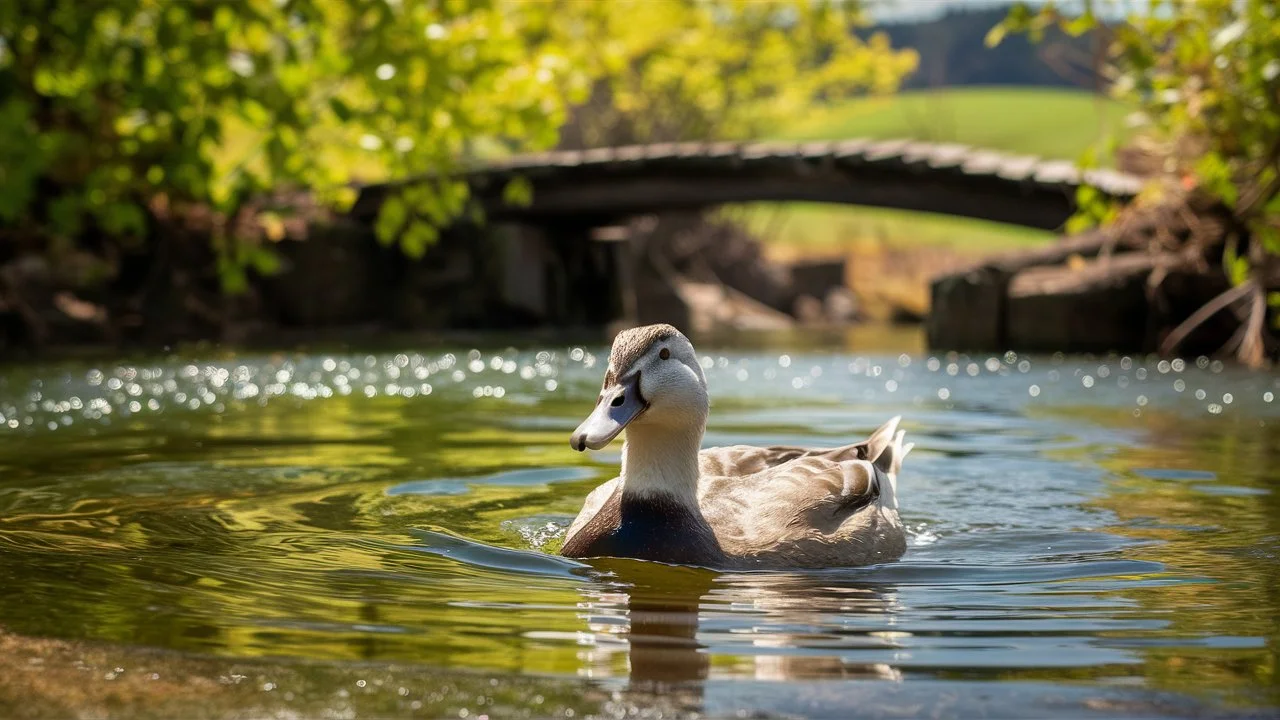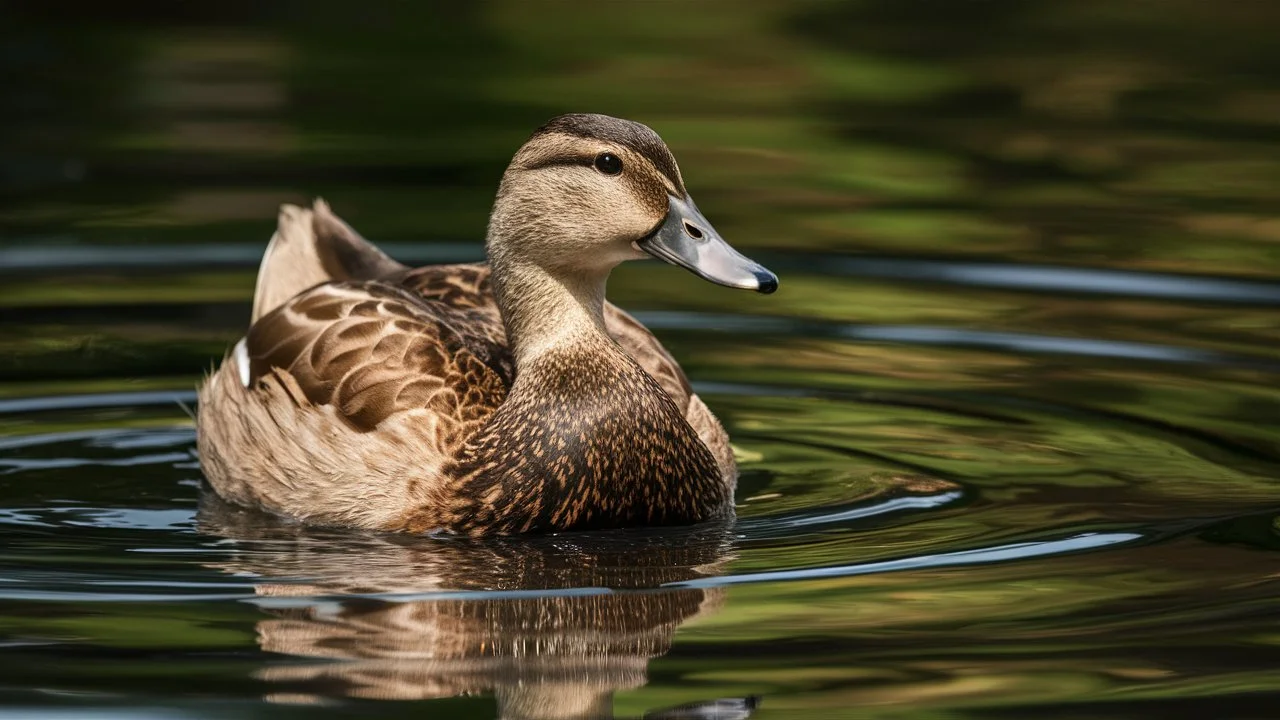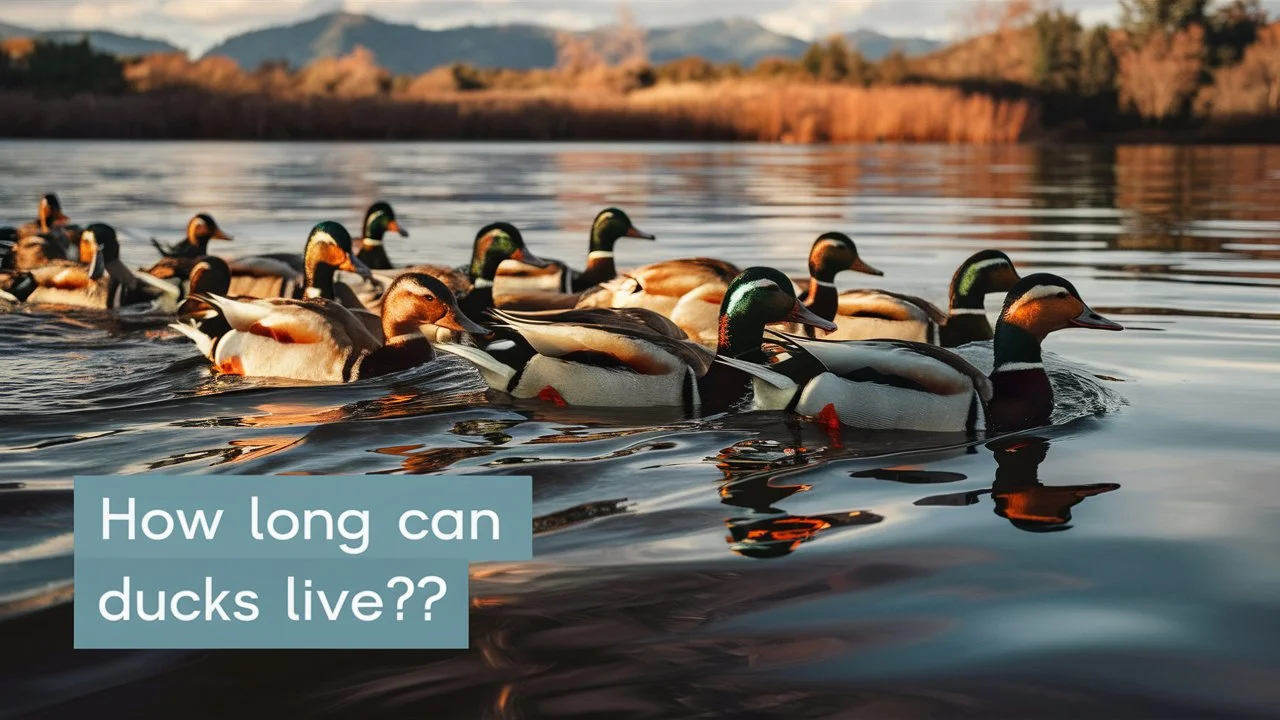Ducks are friendly and interesting birds that many people love to watch. They can be found in ponds, lakes, rivers, and even in city parks. Ducks have colorful feathers, and their quacking sounds are easy to recognize. But how long do ducks live? The answer depends on a few things, like whether they live in the wild or are kept as pets, their species, and how well they are taken care of.
In this article, we will look at how long different types of ducks can live and what affects their lifespan. By learning about these factors, we can understand more about these amazing birds and how to help them live longer and healthier lives.
Ducks can live for different lengths of time depending on their species and living conditions. On average, wild ducks live between 5 to 10 years, but they face many dangers such as predators, harsh weather, and diseases, which can shorten their lifespan. In contrast, domesticated ducks, which are kept as pets or for farming, often live longer, usually between 8 to 12 years, because they have better access to food, shelter, and medical care. Some species, like Muscovy ducks, can live up to 20 years in captivity with the right care. Overall, providing a safe environment, proper nutrition, and regular healthcare can help ducks live their longest, healthiest lives.
How Long Can Ducks Live?
Ducks are interesting and friendly birds that many people enjoy watching. They are found in many places around the world, living in both wild and domestic environments. But how long do these feathered creatures live? This is a question many people ask, and the answer depends on several factors, such as species, environment, and care.
Related reading: Do Ducks Mate for Life?

Different Species of Ducks
There are many different species of ducks, and each has its own lifespan. For example:
- Mallard Ducks: These are the most common wild ducks. They can live up to 5 to 10 years in the wild.
- Pekin Ducks: These are popular domesticated ducks often raised for meat and eggs. They can live about 8 to 12 years with proper care.
- Muscovy Ducks: Known for their unique appearance, these ducks can live up to 20 years in captivity.
- Call Ducks: These small, ornamental ducks can live about 7 to 10 years.
Factors Affecting Duck Lifespan
1. Environment
Ducks living in the wild face many challenges. Predators, such as foxes, raccoons, and birds of prey, can reduce their lifespan. Wild ducks also face harsh weather, disease, and food scarcity. In contrast, domesticated ducks live in a more controlled environment. They have regular access to food, shelter, and protection from predators, which helps them live longer.
2. Diet
A balanced diet is crucial for a duck’s health and longevity. Wild ducks eat a variety of foods, including insects, plants, and small fish. This diverse diet helps them get the necessary nutrients. Domesticated ducks often eat commercial feed, which is specially formulated to meet their dietary needs. Owners may also give them fresh fruits and vegetables as treats.
3. Healthcare
Regular healthcare can significantly extend a duck’s life. Domesticated ducks often receive better medical care than wild ducks. This includes vaccinations, treatments for parasites, and veterinary check-ups. Early detection and treatment of illnesses can prevent severe health problems.
4. Living Conditions
Clean and safe living conditions are essential for ducks. In the wild, ducks face pollution and habitat destruction, which can harm their health. Domesticated ducks benefit from clean water, secure housing, and regular cleaning of their living areas. This reduces the risk of infections and diseases.
Common Health Issues
Ducks, like all animals, can suffer from various health issues that can affect their lifespan. Some common problems include:
- Parasites: Ducks can get parasites like lice and mites. These pests can cause discomfort and spread diseases.
- Respiratory Infections: Poor air quality and damp conditions can lead to respiratory problems in ducks.
- Foot Problems: Ducks that spend a lot of time on hard surfaces can develop foot sores and infections.
- Egg Binding: Female ducks may sometimes have trouble laying eggs, which can be life-threatening if not treated.
How to Help Ducks Live Longer
If you have pet ducks, there are several things you can do to help them live a long and healthy life:
- Provide a Balanced Diet: Ensure they have access to high-quality feed and fresh water. Supplement their diet with greens and occasional fruits.
- Regular Health Checks: Take your ducks to the vet for regular check-ups and vaccinations. Keep an eye out for any signs of illness or distress.
- Clean Living Environment: Keep their living area clean and dry. Provide a safe and secure shelter to protect them from predators and harsh weather.
- Plenty of Exercise: Ducks need space to roam and swim. Ensure they have access to a pond or a kiddie pool for swimming.
- Social Interaction: Ducks are social animals. If possible, keep more than one duck so they have companionship. Interact with them regularly to keep them happy.
Fun Facts About Ducks
- Migration: Many wild duck species migrate long distances to find food and suitable nesting sites.
- Communication: Ducks have a variety of calls and sounds they use to communicate with each other.
- Waterproof Feathers: Ducks have a special gland near their tails that produces oil. They use this oil to waterproof their feathers, which helps them stay dry while swimming.
- Strong Flyers: Despite their sometimes clumsy appearance on land, many ducks are strong and agile flyers. Some can reach speeds of up to 60 miles per hour.

How Long Can Ducks Live in the Wild?
Ducks are versatile and resilient birds found in a variety of wild habitats, including lakes, rivers, marshes, and coastal regions. The lifespan of ducks in the wild varies depending on species, environmental conditions, predation risks, and other factors. Generally, wild ducks have shorter lifespans compared to their domesticated counterparts due to the challenges they face in their natural habitats.
Average Lifespan of Wild Ducks
- Mallard Ducks: These are the most widespread and recognizable wild ducks. Mallards typically live for about 5 to 10 years in the wild, though some can live longer under favorable conditions.
- Wood Ducks: These ducks, known for their striking appearance and preference for wooded swamps and marshes, usually live around 3 to 4 years in the wild. However, some individuals can live up to 15 years if they avoid predation and disease.
- Northern Pintails: These elegant ducks often inhabit open wetlands and can live around 5 to 10 years in the wild.
- Teal Ducks (Blue-winged and Green-winged): These small, agile ducks have an average lifespan of about 2 to 5 years in the wild.
Factors Affecting Lifespan in the Wild
- Predation: Predators pose a significant threat to wild ducks. Foxes, raccoons, birds of prey, and even larger fish can prey on ducks and their eggs. Ducklings are especially vulnerable to predation, which significantly impacts their survival rates.
- Weather and Environmental Conditions: Harsh weather conditions, such as extreme cold, drought, or storms, can affect duck survival. Ducks must find adequate food and shelter to withstand these conditions.
- Disease: Wild ducks are susceptible to various diseases, including avian influenza, botulism, and parasites. These diseases can spread rapidly in wild populations, leading to significant mortality.
- Food Availability: Access to a reliable food source is crucial for wild ducks. Seasonal changes can affect the availability of food, and ducks may need to migrate long distances to find sufficient resources.
- Habitat Quality: The quality and availability of suitable habitat play a critical role in the survival of wild ducks. Wetland degradation and loss due to human activities, such as agriculture and urban development, can negatively impact duck populations.
- Human Interaction: Hunting is a major factor affecting the lifespan of wild ducks. In many regions, ducks are hunted for sport and food, which directly reduces their numbers. Additionally, pollution and habitat disturbance caused by human activities can harm duck populations.
Migration and Survival
Many species of wild ducks are migratory, traveling long distances between breeding and wintering grounds. Migration is a perilous journey that tests the endurance and resilience of ducks. During migration, ducks face numerous challenges, including:
- Energy Expenditure: Migration requires significant energy reserves. Ducks must find enough food to fuel their long flights.
- Weather Hazards: Migrating ducks encounter various weather conditions, including storms and high winds, which can be dangerous.
- Hunting Pressure: Migratory ducks often pass through areas where hunting is prevalent, increasing their risk of being shot.
Despite these challenges, migration is a critical part of the life cycle for many duck species, allowing them to exploit different habitats and resources throughout the year.
Conservation Efforts
Conservation efforts play a vital role in protecting wild duck populations and ensuring their longevity. Key conservation strategies include:
- Habitat Protection and Restoration: Preserving and restoring wetlands and other critical habitats provide ducks with the resources they need to thrive.
- Regulated Hunting: Implementing and enforcing hunting regulations helps manage duck populations sustainably.
- Disease Monitoring and Control: Monitoring wild duck populations for diseases and taking measures to control outbreaks can reduce mortality rates.
- Research and Education: Conducting research on duck ecology and educating the public about the importance of conservation helps build support for protective measures.
Conclusion
Ducks are fascinating birds with varying lifespans depending on their species, environment, and care. Wild ducks often live shorter lives due to predators and environmental challenges, while domesticated ducks can live much longer with proper care. Providing a balanced diet, clean living conditions, and regular healthcare are key to helping ducks live a long and healthy life. Whether they are waddling around your backyard or flying across the sky, ducks bring joy and beauty to our world.

